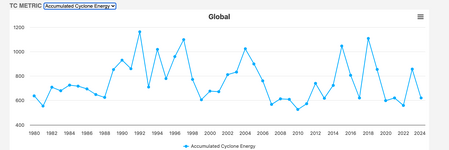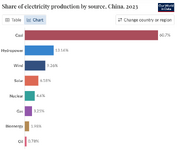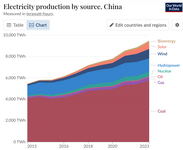dik
Structural
- Apr 13, 2001
- 26,021
For earlier threads, see:
For earlier threads, see:Things are Starting to Warm Up. - Climate Change Engineering Solutions
https://www.reuters.com/world/asia-pacific/hottest-city-earth-mothers-bear-brunt-climate-change-2022-06-14/ a sign of things to come... hold on to your hats, folks. [pipe] Rather than think climate change and the corona virus as science, think of it as the wrath of God. Do you feel any...
Things are Starting to Warm Up Part II - Climate Change Engineering Solutions
For earlier thread, see thread1618-496010 So strange to see the singularity approaching while the entire planet is rapidly turning into a hellscape. -John Coates -Dik
Things are Starting to Warm Up Part III - Climate Change Engineering Solutions
For earlier thread, see thread1618-496010: Things are Starting to Warm Up. thread1618-496614: Things are Starting to Warm Up Part II So strange to see the singularity approaching while the entire planet is rapidly turning into a hellscape. -John Coates -Dik
Things are Starting to Warm/Heat Up Part IV - Climate Change Engineering Solutions
thread1618-496010: thread1618-496614: thread1618-497017: So strange to see the singularity approaching while the entire planet is rapidly turning into a hellscape. -John Coates -Dik
Things are Starting to Heat Up - Part V - Climate Change Engineering Solutions
thread1618-496010 thread1618-496614 thread1618-497017 thread1618-497239 So strange to see the singularity approaching while the entire planet is rapidly turning into a hellscape. -John Coates -Dik
Things are Starting to Heat Up Part VI - Climate Change Engineering Solutions
thread1618-496010 thread1618-496614 thread1618-497017 thread1618-497239 thread1618-497988 So strange to see the singularity approaching while the entire planet is rapidly turning into a hellscape. -John Coates -Dik
Things are Starting to Heat Up - Part VII - Climate Change Engineering Solutions
thread1618-496010: thread1618-496614: thread1618-497017: thread1618-497239: thread1618-497988: thread1618-498967: -----*****----- So strange to see the singularity approaching while the entire planet is rapidly turning into a hellscape. -John Coates -Dik
Things are Starting to Heat Up - Part VIII - Climate Change Engineering Solutions
thread1618-496010 thread1618-496614 thread1618-497017 thread1618-497239 thread1618-497988 thread1618-498967 thread1618-501135 -----*****----- So strange to see the singularity approaching while the entire planet is rapidly turning into a hellscape. -John Coates -Dik
Things are Starting to Heat Up - Part IX - Climate Change Engineering Solutions
thread1618-496010: thread1618-496614: thread1618-497017: thread1618-497239: thread1618-497988: thread1618-498967: thread1618-501135: thread1618-504850: -----*****----- So strange to see the singularity approaching while the entire planet is rapidly turning into a hellscape. -John Coates -Dik
Things are Starting to Heat Up - Part X - Climate Change Engineering Solutions
For earlier thread, see: thread1618-496010 thread1618-496614 thread1618-497017 thread1618-497239 thread1618-497988 thread1618-498967 thread1618-501135 thread1618-504850 thread1618-506948 -----*****----- So strange to see the singularity approaching while the entire planet is rapidly turning...
Things are Starting to Heat Up - Part XI - Climate Change Engineering Solutions
For earlier threads, see: thread1618-496010 thread1618-496614 thread1618-497017 thread1618-497239 thread1618-497988 thread1618-498967 thread1618-501135 thread1618-504850 thread1618-506948 thread1618-507973 -----*****----- So strange to see the singularity approaching while the entire planet...
Things are Starting to Heat Up - Part XIII - Climate Change Engineering Solutions
For earlier threads, see: thread1618-496010 thread1618-496614 thread1618-497017 thread1618-497239 thread1618-497988 thread1618-498967 thread1618-501135 thread1618-504850 thread1618-506948 thread1618-507973 thread1618-510266 thread1618-512015 -----*****----- So strange to see the singularity...
Last edited:






